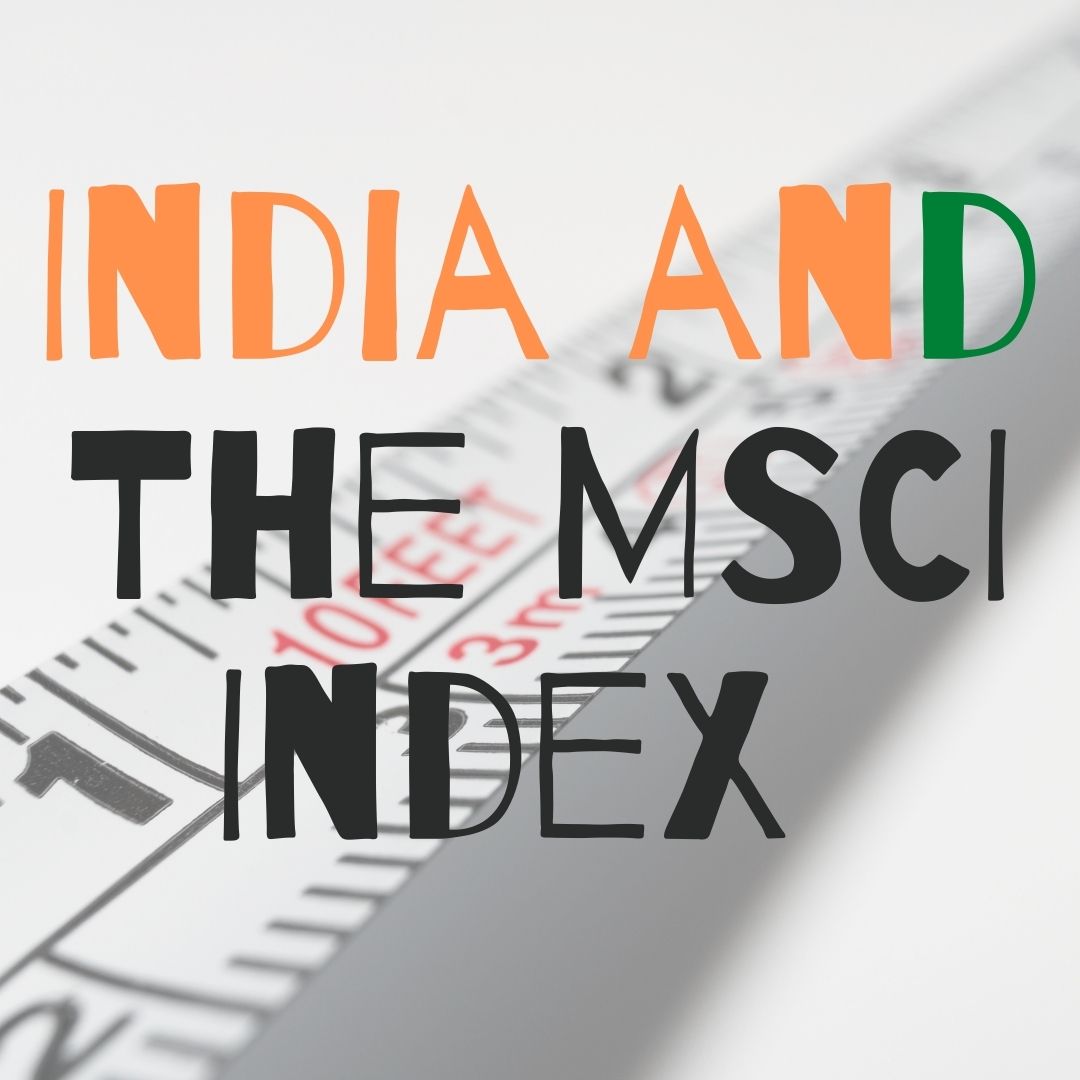India and The MSCI Index
- 11 November 2021 | 2455 Views | By Abhinav Mishra

India is one of the largest emerging markets. Foreign Investors around the globe are betting on India and putting their money in the Indian market. One of the key parameters that drive the money in the Indian equity market is MSCI Index.
What is MSCI India Index?
Morgan Stanley Capital International (MSCI) has set many indices across the globe for developed and emerging markets. One such index composed by them is for Indian stocks known as MSCI India Index.
The purpose of the MSCI India Index is to measure the performance of a large and mid-cap segment of the Indian market. There are 101 companies in the index that approximately covers 85% of the Indian equity by market cap. The MSCI India Index is close to three decades old and was launched on 30 April 1993.
How are Companies picked in MSCI India Index?
Similar to Sensex, we have MSCI India Index. Every stock that is part of the index has a particular weightage and the weightage depends on many parameters. Below are three important parameters that determine the weightage of the company in the index (and eventually investors money):
- the company’s total turnover
- the returns (dividends) that investors receive on the shares
- the market capitalization of the company
Market capitalization represents the number of company shares into the current price of a single stock. Higher the market capitalization of the company, it will have higher weightage in the index. You would have guessed by now that the MSCI India Index consists of some of the biggest companies in India.
The index rebalancing or review happens four times a year in February, May, August, and November. After the review cycle, some companies are removed from the index (those not meeting criteria), while some new ones make entries.
What are the top constituents of the MSCI India Index?
As of 31 August 2021, the top 10 companies in the index are from the IT, financial services, and energy sectors. The list is as below:
- Reliance Industries – 9.27%
- Infosys – 8.37%
- HDFC Ltd – 6.90%
- ICICI Bank – 5.29%
- TCS – 5.04%
- HUL – 3.22%
- Bajaj Finance – 2.93%
- Axis Bank – 2.56%
- Bharti Airtel – 2.34%
- HCL – 1.85%
The above ten companies constitute 47.77% of the total index. Below is the sector weightage of the index after the August month review.

Why FIIs use MSCI Index?
Foreign investors are always looking for markets and then the stocks in those markets that can give them excellent returns. They want to ensure the company is stable and there is minimum volatility in the stock price. The MSCI India Index indicates to FIIs the soundness of the Indian capital market.
Most FIIs invest in the companies that are part of the index because of the returns delivered in the past. The companies that have higher weightage in the MSCI index will receive higher funds from the FIIs. In the future, if the weightage of the company is reduced, then there are chances the investors will withdraw funds from the company.
MSCI Index and Passive Investing
As mentioned above, investors invest based on the weightage, which leads to passive investing in these companies. Let us understand it with an example. Let us assume an investor has Rs 10 crore to invest in the Indian equity market, and he decides to invest as per MSCI India Index.
The top constituent of the index has a weightage of 10% (company X), while the second has 8% (company Y). Based on the weightage, the investor will invest Rs 1 crore in company X and Rs 80 lakh in company Y. Remaining money is divided accordingly. Every time the index components change, the investor also rebalances or readjusts his portfolio.
Passive Investing : Must read guide before you start investment
What is the MSCI India Index performance?
How good the index is, depends on its performance – the actual returns to investors. To know the performance of the MSCI India Index, we will compare it with other MSCI indexes – MSCI Emerging Markets and MSCI BRIC. Below is the chart that shows the gross returns of the index between August 2006 and August 2021. You can see from the graph, for most parts (except 2011-2014), the India index performed better than the other two.
How does MSCI India Index affect the Indian equity market?
We discussed how the index brings in passive funds in India. If a company’s weightage in the index increases in the review cycle, many FIIs will be increasing their stake in the company. Also, if there is a new entrant in the index, the money will come to those stocks.
Index vs Active Mutual Funds | What to pick ? | Explained !!!!
Assuming more inflows will increase the stock price, many investors buy such stocks in the hope of making quick money. Even though such stocks are tempting, you must be careful while investing in these companies – At the end of the day, what matters the most is the company’s fundamentals.










